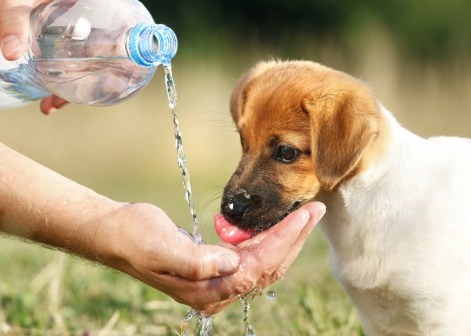
Mercy with Animals
Some objective Western researchers say after reading the hadith of Prophet Mohammad, PBUH,
“even in the slaughter of animals, the Prophet (SAW) showed great gentleness and sensitivity. While he did not practice vegetarianism, the hadiths clearly show that the Prophet was extremely sensitive to the suffering of animals. Thus he recommends using sharp knives and a good method so that the animal can die a quick death with as little pain as possible. He also warned against slaughtering an animal in the presence of other animals, or letting the animal witness the sharpening of blades: to him that was equal to "slaughtering the animal twice"; Prophet Mohammad, PBUH, said:
“Allah Who is Blessed and Exalted, has prescribed benevolence toward everything {and has ordained that everything be done in a good way}; so, when you must kill a living being, do it in the best manner and, when you slaughter an animal, you should {use the best method and} sharpen your knife so as to cause the animal as little pain as possible.”
narrated by Imam Muslim.
Prophet Mohammad also said to a man who was sharpening his knife in the presence of the animal:
"do you intend inflicting death on the animal twice - once by sharpening the knife within its sight, and once by cutting its throat?' Hence, isn’t this prophet worthy of respect and reverence?
In her book Prophet Mohammad, PBUH, a Pioneer of the Environment, Francesca De Chatel says about Prophet Mohammad: “He (SAW) was a strong proponent of the sustainable use and cultivation of land and water, proper treatment of animals, plants and birds, and the equal rights of users. In this context the modernity of the Prophet's (SAW) view of the environment and the concepts he introduced to his followers is particularly striking; certain passages of the hadith could easily be mistaken for discussions about contemporary environmental issues.” It could be said that the time of Prophet Mohammad, PBUH, was a time when ignorance prevailed for people looked at animals as creatures with no value, feelings or emotions. Prophet Mohammad, PBUH, however, commanded believers to take good care of creatures; he even called one of his great companions “Abu Hurairah” and hurairah in Arabic means kitten and Prophet Mohammad, PBUH, called him Abu Hurairah to encourage and support him for taking care of cats and treating them kindly. Thus, Prophet Mohammad, PBUH, is worthy of being described as the Prophet of mercy to mankind and all creatures. Allah, the great says:
“We sent thee not, but as a Mercy for all creatures.”
Anbiya'a or the Prophets: 21: 107
--------------------
By: Abduldaem Al-Kaheel
www.kaheel7.com/eng